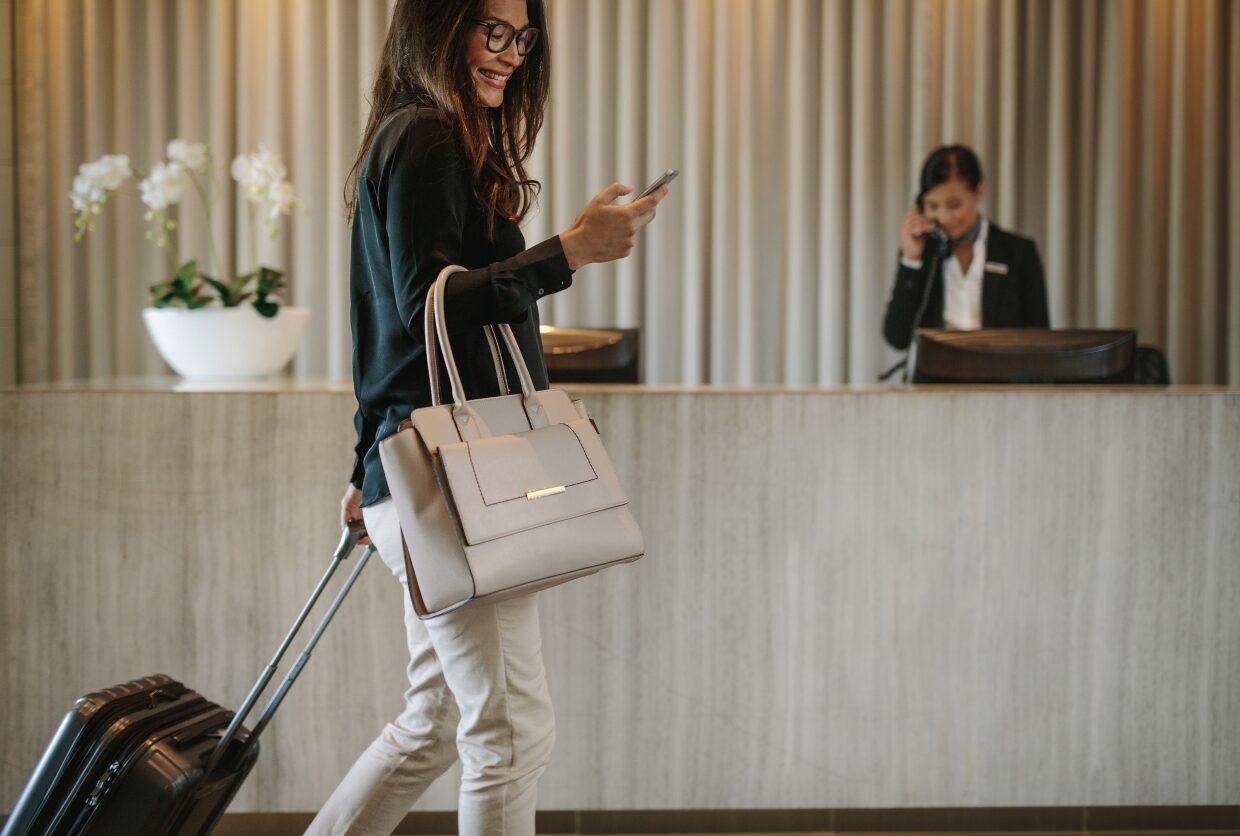
Technology in hospitality has reached a tipping point. 2025 reports show that 96% of hoteliers are investing in contactless technology, and 77% of guests prefer automated messaging over traditional communication methods.
Here’s the reality most hotel operators face right now: staffing shortages continue to squeeze operations while guests expect faster, more personalized service than ever before. You can’t hire your way out of this problem, and you can’t ignore guest expectations without losing bookings.
Technology has become the bridge between what guests want and what your team can realistically deliver. The following trends are practical solutions that real hotels are using to solve problems and improve guest satisfaction scores.
Forget basic chatbots that can barely handle “What time is checkout?” Agentic AI represents the biggest leap forward in hospitality automation. According to Gartner’s Top 10 Strategic Technology Trends, agentic AI was identified as the No. 1 trend for 2025.
Unlike traditional AI that follows scripts, agentic systems can autonomously complete complex tasks like processing bulk check-ins, coordinating maintenance schedules, and handling multi-step guest requests without human oversight.
The Marriott International offers a telling example. Their agentic AI system now processes routine guest services requests end-to-end, from room service modifications to spa bookings, without staff intervention. Automating costly processes and improving guest experiences are two priorities of Marriott’s agentic AI. The goal is to move associates away from manual tasks to focus their attention on better serving guests.
Naveen Manga, Global Chief Information Officer at Marriott, told CIO Drive, “We’re looking at those capabilities to fix outdated processes. We’re always experimenting with emerging technologies with both ambition and caution.”
Hotels utilizing advanced agentic AI report 35% faster check-in times and 20% lower labor costs, according to Roommaster. The technology not only answers questions, but it also takes action. When a guest mentions their anniversary in passing, the system can automatically coordinate with housekeeping for room amenities, update dining reservations, and adjust room preferences without anyone picking up a phone.
AR has moved beyond the gimmick phase into genuine utility for hotel guests. With AR and VR, “reservation centers can elevate customer experience and introduce next-level upselling strategies,” says Are Morch, Digital Transformation Coach for Hotels.
Guests can “walk through” their desired room before booking and see the amenities, layout, and balcony view. Want to upsell a premium suite? “Instead of telling guests about the benefits, AR can show them a side-by-side comparison of room types in real time,” Morch adds.
Hotels are embracing a strategic approach known as “space-as-a-service,” which reimagines guest spaces within the hospitality industry by integrating AR/VR. According to Jaime Bettencourt, SVP of North America Global Services Sales at Mood Media, “Washington D.C.’s Cambria Hotel displays an immersive LED experience around the elevator bay, transforming an active but soulless space into a vast mural.”
Interactive hotel maps are becoming increasingly common. They enable guests to explore local attractions, find nearby dining options, and easily navigate the city, all at their fingertips.
Wellness tech in hotels has grown beyond basic gym equipment. Properties are installing sleep optimization systems, air quality monitors, and smart mirrors that actually impact how guests feel during their stay.
The demand is real, with nearly 82% of U.S. consumers now considering wellness a top priority. Modern travelers increasingly prioritize wellness amenities when choosing accommodations, particularly business travelers dealing with jet lag and disrupted routines. Hotels are responding with circadian lighting systems, air purification technology, and in-room wellness apps integrated with room controls.
Smart lighting that adjusts throughout the day helps guests sleep better. Air quality monitoring appeals to health-conscious travelers. Some properties are even creating dedicated wellness room categories with premium rates.
Wellness tech addresses genuine guest pain points — poor sleep, air quality concerns, and limited fitness options — while creating opportunities for premium pricing and differentiation.
Your hotel knows more about guest preferences than most guests remember about themselves. Use that data to your advantage and create better guest experiences.
Predictive systems automatically configure rooms based on previous stays with information about temperature settings, pillow preferences, or even lighting schedules. Major hotel chains are implementing these systems across their portfolios, so guest preferences from one property automatically apply to stays at other locations.
These technology systems analyze booking patterns, previous stay behavior, and real-time guest interactions to anticipate needs before they’re expressed. When returning guests book stays, rooms can be automatically configured to match their historical preferences.
Here’s what separates this from basic customer data: the system acts on information automatically rather than waiting for staff to manually implement preferences. The result is smoother operations and more personalized experiences.
With 73% of travelers seeking to embrace more sustainable travel when making booking decisions for next year, the business case for sustainability tech writes itself.
Smart energy systems learn occupancy patterns and adjust heating, cooling, and lighting accordingly. The technology ensures rooms use minimal energy when empty but return to optimal conditions before guest arrival. Food waste reduction AI predicts demand for restaurants and banquet services, helping properties reduce waste while maintaining adequate supply.
The guest experience angle matters too. Properties can show real-time sustainability metrics during stays, like energy saved, water conserved, waste reduced. This transparency appeals to environmentally conscious travelers and often translates to positive reviews.
The technology delivers operational cost savings while positioning properties as responsible stewards. It’s a rare case where doing good and doing well align perfectly.
Regardless of the trend, technological advances in the hospitality industry require reliable internet connectivity to maintain their efficiency. Blueprint RF specializes in building responsive networks for cutting-edge hotels, powering all of the technology trends listed above.
Looking to boost your hotel’s connectivity? Request a consultation with our experienced team today.